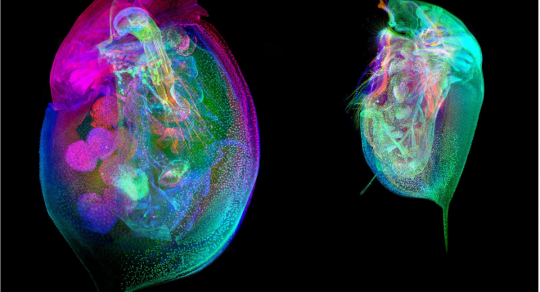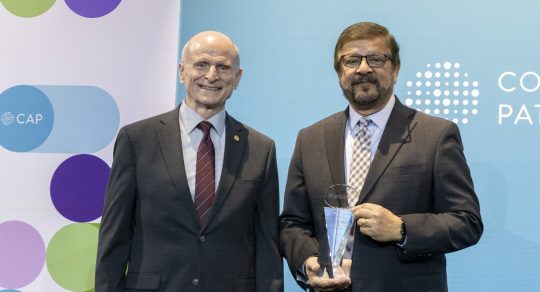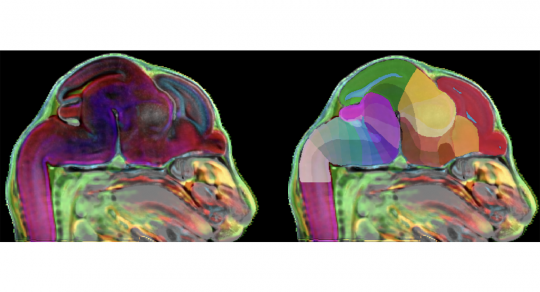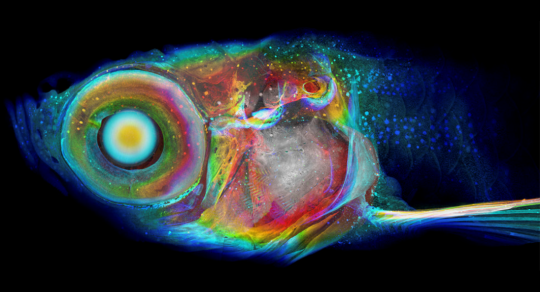Fellowship
Surgical Pathology
The Surgical Pathology Fellowship at Penn State Health Milton S. Hershey Medical Center is a one-year, ACGME-accredited, fully-funded program that admits one fellow per year.
Explore More
The Surgical Pathology Fellowship at Penn State Health Milton S. Hershey Medical Center is a one-year, ACGME-accredited, fully-funded program that admits one fellow per year.

Program Overview
The Surgical Pathology Fellowship includes training in all aspects of adult and pediatric surgical pathology. Applicants should be board-certified or board-eligible in combined anatomic/clinical pathology or anatomic pathology only.
Learn More about the Fellowship
The aim of the Surgical Pathology Fellowship is to assure competency in general surgical pathology through mandatory rotations in all subspecialty areas; to provide flexibility for advanced study in subspecialties determined by the fellow; to develop habits of inquiry and critical thinking through a required research project; to advance the fellow’s knowledge of systems issues through required participation in a QI project; and of most importance, to further advance the fellow’s medical knowledge, build the fellow’s professional confidence, and develop the fellow’s skills as an educator, by having the fellow serve in a variety of teaching roles.
The fellow will be evaluated on the six core competencies of Patient Care, Medical Knowledge, Practice Based Learning and Improvement, Systems Based Practice, Interpersonal Skills and Communication, and Professionalism, through self, peer, staff and faculty evaluations.
The fellow will complete mandatory rotations in all subspecialty areas, as aforementioned; this comprises nine two-week rotations. The fellow, if deemed competent, will advance to a teaching role after these mandatory core rotations. The benefit of being in a one-on-one teaching role needs to be balanced against the benefit of additional experience in the subspecialties most needed by the fellow. This will be accomplished by requiring that a minimum of five two-week rotations during the second block be in a teaching role with a junior resident, with the flexibility to select the remaining three two-week cycles according to need for additional experience, regardless of whether a junior resident is on that service or not.
The fellow will have six two-week elective rotations. The final four weeks of the year are vacation time.
The fellow will complete a Quality Assurance Project and present this in the spring. The fellow will perform a research project with the expectation that the project be submitted for presentation or publication during or shortly after the end of the fellowship year.
The fellow will prepare and present three themed hour-long conferences at the Surgical Pathology Unknowns Conference; this is felt to be of more educational value than a larger number of isolated case presentations. The fellow will serve in a leadership role in Surgical Pathology Unknowns Conference by routinely being the individual who drives the slides and leads the residents in discussion of the cases.
In order to develop competence and confidence presenting in interdisciplinary conferences, the fellow will have a longitudinal experience with a single tumor board, as this develops familiarity with subject matter and clinical decision making in that clinical discipline as well as building a relationship with clinical colleagues in a particular discipline. The fellow will be allowed to chose a tumor board if he or she enters the program with a subspecialty interest. Otherwise, the fellow will be assigned to the GU tumor board, as this is a good clinical group to work with; the cases are interesting and varied, the preparation time is not unmanageable, and it is a real-time patient management conference.
Another aspect of the fellow’s training in the area of education is program review. The fellow will participate with the Fellowship Committee in the annual review of the Fellowship Program to offer insight, perspective and suggestions for improvement.
General Application Information
Applications are currently being accepted for 2024-2025.
To apply, submit the information listed here via email to esmith31@pennstatehealth.psu.edu.
A complete application will include:
CAP Standardized Pathology Fellowship Application (found under "Fellowship Resources" at this link)
Cover letter with personal statement
Curriculum vitae
Copy of USMLE test scores (or equivalent)
Letter of recommendation and verification of training from current/most recent program director
Two to three additional letters of recommendation
Letters of recommendation may be emailed directly by the references.
Application Requirements
Applicants should:
Be board-certified or board-eligible in combined anatomic/clinical pathology or anatomic pathology only
Be eligible for PA license
Be U.S. citizens or holders of green cards or J-1 visas
Current Fellow
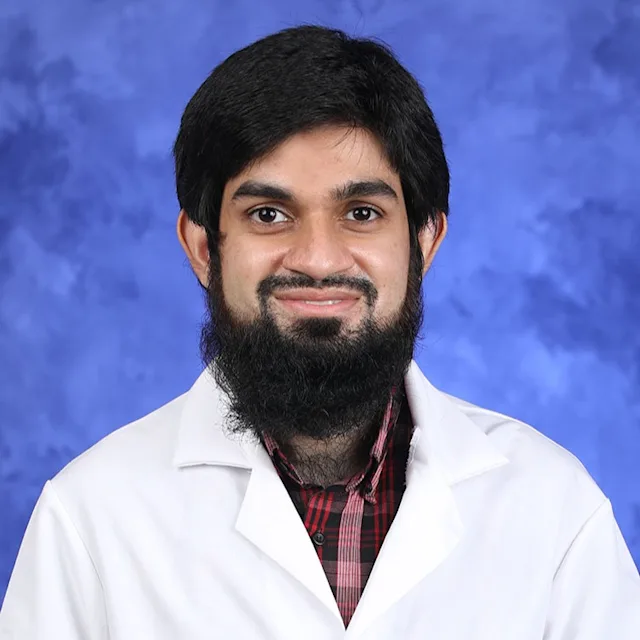
PGY-5 Fellow, Surgical Pathology Fellowship
Leadership


Program Coordinator, Pathology Residency, Blood Banking/Transfusion Medicine Fellowship, Hematopathology Fellowship and Surgical Pathology Fellowship, Pathology and Laboratory Medicine
